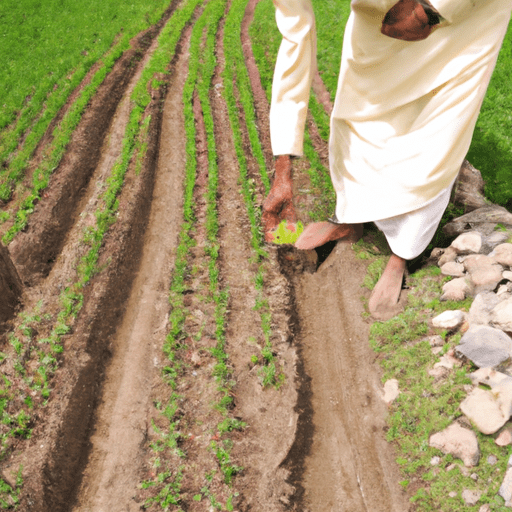Halal farming takes root as a new player in the agricultural industry, particularly in Islamic countries. This is because of the increasing demand for Halal foods and products all over the world. The word Halal means “lawful” in Arabic, and it applies to all aspects of life, including food and agriculture. Halal farming is not just about producing food, but it also involves ethical and sustainable practices that are in line with Islamic principles.
Halal farming starts with the understanding and application of Islamic teachings on animal welfare, water management, and soil conservation. These principles govern how farmers produce crops and rear livestock. Halal farming is also concerned with the environmental impact of agriculture and aims to maintain biodiversity and natural resources.
Islamic principles require that animals be reared in a humane manner, and this includes providing them with sufficient food, water, and space to roam freely. The animals must be treated with respect and dignity, and their slaughter must be done in the most painless way possible. The halal method of slaughter involves cutting the animal’s throat with a sharp knife, and it must be performed by a Muslim who recites the name of Allah during the process.
Water management is another important aspect of Halal farming. Islam considers water a precious resource, and farmers must use water resources responsibly. This means that farmers must use water-efficient irrigation systems and avoid unnecessary water wastage. In addition, farmers must protect water sources that provide drinking water for humans and animals.
Soil conservation is also an integral part of Halal farming. Islamic principles require that farmers take care of the soil by avoiding harmful practices such as overgrazing, monoculture, and excessive use of agrochemicals. Instead, farmers should practice crop rotation, use organic fertilizers, and employ other natural practices to maintain soil fertility.
Halal farming also promotes the use of non-toxic and biodegradable materials in agriculture. This includes avoiding the use of synthetic pesticides and herbicides and instead using natural substances such as neem oil and garlic spray to control pests and diseases. These natural substances are not harmful to humans, animals, or the environment.
Another important aspect of Halal farming is social and economic responsibility. Islamic teachings require that farmers treat their workers fairly and provide them with a safe working environment. Farmers must also work to improve the economic welfare of their communities by investing in local businesses and providing job opportunities.
Halal farming is not limited to Islamic countries, as it is now gaining popularity in other parts of the world. This is because more people are becoming aware of the ethical and environmental concerns of agriculture. Halal farming offers consumers an alternative to conventional farming methods that are not always sustainable and ethical.
Halal farming is also beneficial for farmers because it promotes sustainable practices that are more cost-effective in the long run. Halal farming reduces the use of expensive agrochemicals and promotes the use of natural fertilizers, which are cheaper and more environmentally friendly.
In addition, Halal farming offers farmers a new market for their products. The demand for Halal food and products is growing around the world, and Halal farmers can tap into this market and benefit from higher prices for their products.
Halal farming is not without its challenges. The main challenge is the lack of understanding and awareness of Halal farming practices. Many farmers and consumers are not familiar with the principles and practices of Halal farming, and this can lead to misconceptions and misunderstandings.
Another challenge is the lack of certification and accreditation for Halal farming products. Consumers need assurance that the products they are buying are indeed Halal, and this can only be done through proper certification and accreditation.
Despite these challenges, Halal farming is here to stay as more people become aware of its benefits. Halal farming offers consumers an alternative to conventional farming methods that are not always sustainable and ethical.
In conclusion, Halal farming is an emerging player in the agricultural industry that promotes ethical, sustainable, and environmentally friendly practices. It is not just about producing food but about doing it in a way that is in line with Islamic principles. Halal farming offers consumers an alternative to conventional farming methods that are not always sustainable and ethical. It is also beneficial for farmers because it promotes sustainable practices that are more cost-effective in the long run. As more people become aware of Halal farming practices, it is expected to grow in popularity and significance.

